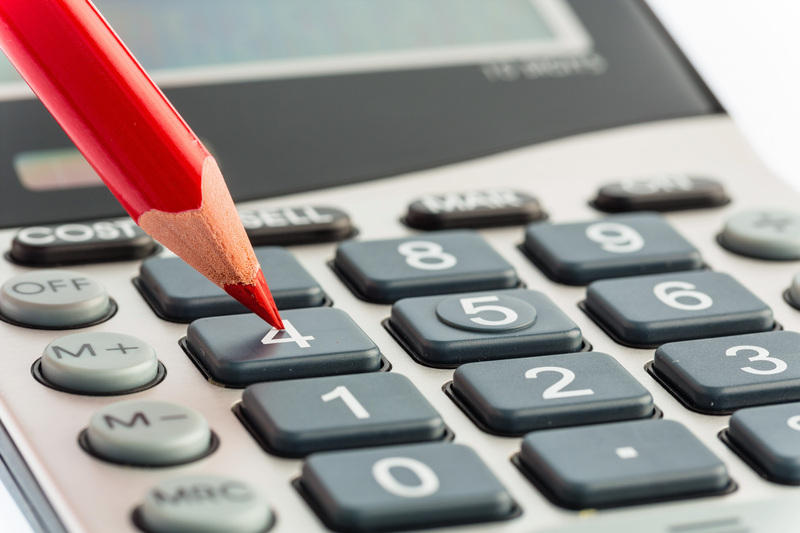Declutter Smartly: Save Money While Moving
Posted on 06/09/2025
Declutter Smartly: Save Money While Moving
Introduction
Moving can be a herculean task, often riddled with stress and substantial expenses. However, one effective way to make your transition smoother and more cost-efficient is to declutter smartly. This strategic approach not only helps reduce the volume of items to be moved but also serves as a fantastic opportunity to save money and simplify your life. In this comprehensive guide, we delve into the nuances of smart decluttering, offering practical tips and strategies to lighten your load and trim moving costs.

The Benefits of Decluttering Before a Move
Decluttering is more than just a way to get rid of unnecessary items; it offers several tangible benefits:
- Reduced Moving Costs: The fewer items you have, the less you need to spend on packing supplies and moving services. Movers often charge based on the volume or weight of the load, so decluttering can substantially cut these expenses.
- Easier Unpacking: Simplifying your inventory before you move makes unpacking in your new home quicker and more efficient.
- Fresh Start: A new home is a chance for a clean slate. By stripping down to essentials, you start your new chapter with less clutter and a more organized living space.
- Eco-Friendly: Decluttering responsibly, such as recycling or donating items, is good for the environment.
- Pocket Some Cash: Selling items that you no longer need can provide extra funds to offset moving costs.
Start Early and Plan Ahead
One of the most critical aspects of a successful decluttering strategy is to start early. Procrastination is your enemy when it comes to moving. Ideally, you should begin the process at least two months before your move. Here are some steps to get you started:
Make a Decluttering Schedule
Break down your decluttering tasks into manageable chunks. For example, dedicate a week to each room or set short-term goals like decluttering one closet per day. This prevents the process from becoming overwhelming.
Gather Supplies
Things you will need include:
- Boxes for items you want to keep but won't need until after the move
- Trash bags for items to be discarded
- Donation bins for items you wish to give away
- Labels and markers for proper categorization
Room-by-Room Decluttering Guide
Approach decluttering systematically by tackling one room at a time. Here's a detailed room-by-room guide:
Living Room
- Electronics: Donate or recycle outdated electronics.
- Furniture: Evaluate the condition and size of each piece. Only keep what fits your new home and discard or sell the rest.
- Decorative Items: Limit sentimental items and choose only a few favorites to keep. Consider donating the rest.
Kitchen
- Appliances: Get rid of gadgets you rarely use.
- Utensils and Cookware: Keep only what you regularly use. Donate duplicates or specialty items that are seldom used.
- Food: Consume perishable items before the move and donate non-perishable items you won't use.
Bedrooms
- Clothes: Sort through your wardrobe and donate, sell, or discard items you no longer wear.
- Bedding: Keep only necessary linens. Donate or throw away extras.
- Furniture: Evaluate the necessity and condition. Only keep essential pieces.
Bathrooms
- Toiletries: Discard expired or unused products.
- Medications: Properly dispose of expired or unneeded medications.
- Linens: Keep essential towels and donate or discard extras.
Sell, Donate, or Recycle
Once you've sorted through your belongings, the next step is to decide the fate of your unwanted items. Here are some options:
Sell
- Online Marketplaces: Platforms like eBay, Craigslist, and Facebook Marketplace are excellent for selling items.
- Garage Sales: Organize a garage sale for neighbors and friends.
- Consignment Shops: These are great for selling high-quality items and clothes.
Donate
- Charities and Thrift Stores: Organizations like Goodwill and The Salvation Army accept a wide range of items.
- Local Shelters: Many shelters accept donations of clothing, bedding, and toiletries.
Recycle
Responsible recycling is crucial for items that cannot be donated or sold. Check your local recycling guidelines and facilities for proper disposal methods. Recycle electronics, plastics, and metals properly to minimize landfill waste.
Pack Smartly
After decluttering, the next step is packing. Smart packing further reduces moving costs and ensures your items reach your new home safely.
Categorize and Label
Proper categorization and labeling of boxes simplify unpacking. Clearly label boxes with their contents and the room they belong to.
Use Quality Packing Materials
Invest in sturdy boxes, bubble wrap, and packing tape. While it may seem like an unnecessary expense, quality materials provide better protection for your belongings, potentially saving you money on replacement costs due to breakage.
Pack Heavy Items in Small Boxes
Packing heavy items like books in small boxes makes them easier to carry and prevents the box from breaking.
Pack Light Items in Large Boxes
Conversely, pack light items like pillows and linens in large boxes to maximize space utilization.

Utilize Professional Decluttering Services
If the task of decluttering seems too daunting, professional services can be a worthwhile investment. Decluttering experts can efficiently sort through your belongings and dispose of unwanted items, saving you time and effort.
Conclusion
Decluttering smartly before a move can transform a potentially stressful experience into a manageable and even enjoyable endeavor. By shedding unnecessary items, you not only reduce your moving costs but also pave the way for a more organized and serene living environment. Start early, utilize the guidance provided, and take full advantage of selling, donating, and recycling opportunities. This systematic approach will ensure you declutter smartly, save money, and begin your new chapter with a clear and harmonious living space.
Incorporate these strategies into your moving plan, and you'll be rewarded with the dual benefits of a lighter load and a heavier wallet. Happy moving!
Latest Posts
Estimating the Duration to Relocate



